Bloomberg: What does it mean for China to issue cryptocurrencies?
- Tram Ho
Recently, images of supposedly electronic money of the People’s Bank of China (PBOC) have been posted by the SCMP. A source close to the newspaper also confirmed that the Chinese banking system has been testing the currency for months.
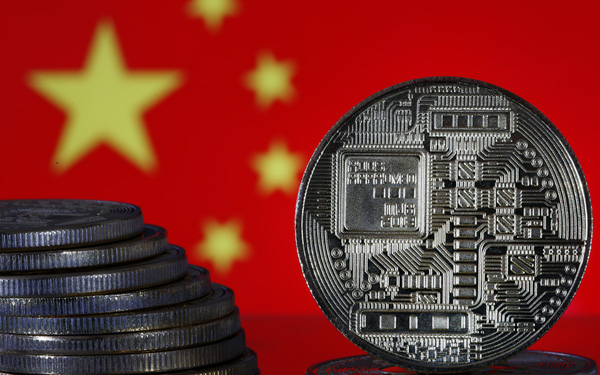
The photo shows China’s crypto app has some basic functions similar to other online payment platforms like Alibaba’s Alipay and Tencent’s WeChat Pay, allowing users to pay, receive and transfer. money. The “touch and touch” function allows two users to touch their phones to perform a money transfer.
If this is the case, China will be the first major power in the world to have a central bank officially issue cryptocurrencies to control the economy as well as the complicated cryptocurrency market.
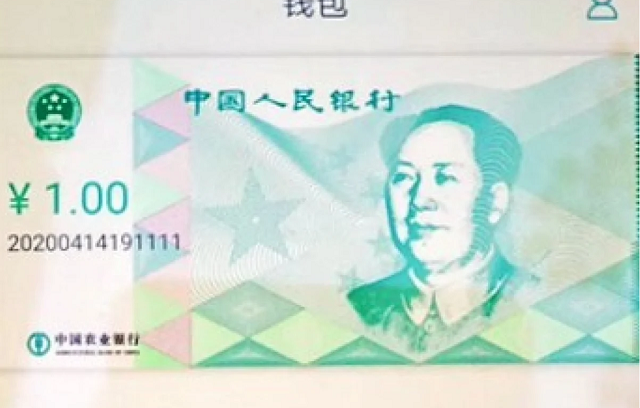
In addition, fears of spreading the Covid-19 epidemic through cash and isolation orders also prompted the PBOC to consider developing an online payment system including cryptocurrencies.
The issuance of cryptocurrencies will make China restrict other cryptocurrencies. In addition to the virtual currencies like Bitcoin, PBOC’s cryptocurrency, if issued, will be more stable due to anchoring to the Yuan.
Still, many experts question the impact of cryptocurrencies on commercial banks, companies with online payment services such as Ant Financial of Alibaba or Tencent Holdings.
1. Money issuance plan
There is no specific information about the issue of digital currency yet, but according to Bloomberg and the statements of PBOC officials, individuals and businesses can download an electronic wallet to their smartphone later. Use electronic money corresponding to the amount of money in commercial banks. They can use this cryptocurrency with anyone with an electronic wallet.
2. Online payment environment
China is one of the pioneers of online payment, or a cashless society. Even roadside eateries in rural towns prefer to use an online payment application over cash.
In the first quarter of 2019, China’s online payment applications traded 59 trillion yuan, or 8.3 trillion dollars, up 15% over the same period last year. About 50% of that belongs to Alibaba’s Ant Financial, one third belongs to Tencent’s Wechat.
Meanwhile, PBOC figures show that the country’s total cashless transactions in 2018 reached 3.8 million billion (Quadrillion) Yuan.
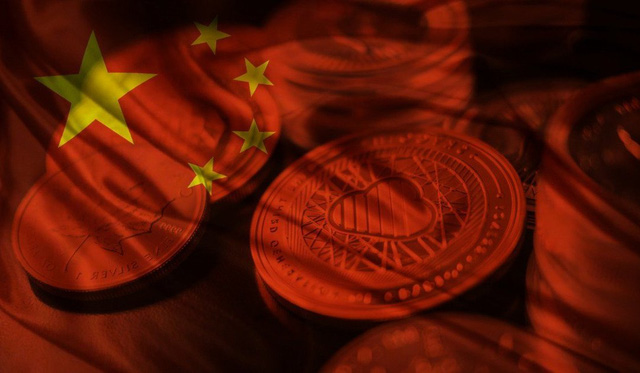
It can be said that the trend of cashless society in China is a common occurrence in developed economies. In developed countries like Sweden, a central bank survey found that only 13% of people paid in cash, lower than the 39% in 2010.
3. Why does PBOC do that?
First, China wants to promote a cashless society so that it can easily trace money laundering as well as other criminal acts.
The move could soon help China deal with the possibility of imposing standards designed by other parties using virtual currencies like Bitcoin.
In addition, a number of companies like Facebook issuing virtual currencies such as Libra are promoting the strength of the dollar as well as reducing the control of China’s financial system. Therefore, an official electronic currency issued by PBOC is reasonable.
4. Is it virtual money?
According to Bloomberg, the cryptocurrency issued by the PBOC is not virtual money. Usually virtual currencies like Bitcoin do not have the control of any government or organization, the Blockchain system will confirm and calculate transactions. Virtual currency trading doesn’t even need intermediaries like central banks to confirm.
Therefore, virtual currencies often fluctuate greatly in value and are not suitable for daily transactions. Instead, they are preferred by gangs as money laundering or speculation.
As for Facebook’s Libra, they are also considered virtual currencies but are more stable because they are pegged to strong currencies such as USD, Euro, and Yen … though they are still processed by Blockchain and without any central bank.
Currently, the PBOC has not yet determined whether the new cryptocurrency will use Blockchain to process transactions.
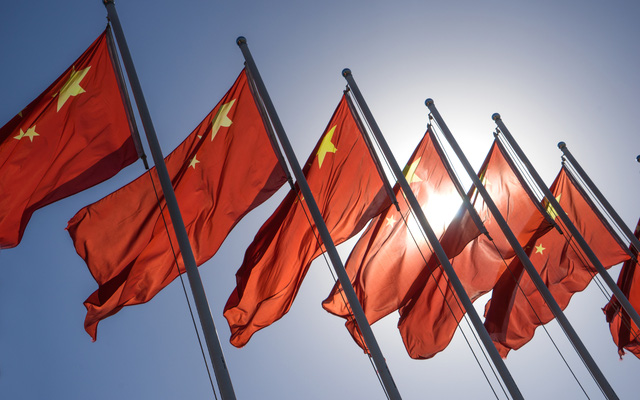
5. Why not use existing virtual money?
China has banned cryptocurrencies as well as calling for capital in virtual currencies since 2017 in order to stabilize the financial system and deal with black credit. Although virtual currencies are still being covertly traded in China, they are strictly controlled.
In addition, the virtual currency currently available on the Chinese market can easily be transferred abroad without control, creating instability and devaluation of the renminbi.
6. Blockchain
China is still considering whether or not to use Blockchain to manage cryptocurrency transactions because many experts worry the technology is not safe enough to handle the huge volume of online transactions here.
On the single day of 2018, online transactions in China peaked at 92,771 online bills per second, much higher than the processing capacity of Bitcoin’s Blockchain system.
7. Confidentiality
PBOC said it will balance the protection of user identities with efforts to deal with financial crimes in cryptocurrency. It is unclear what this means at this point, but the PBOC says it will not fully disclose cryptocurrency user information to banks.
However, personal identities will be tied to electronic wallets, thereby helping authorities to investigate when necessary.
8. When is it released?
According to Bloomberg, PBOC will soon release cryptocurrencies widely to the market. In fact since 2014, PBOC has been studying cryptocurrency plans and recruiting many industry experts to develop this project.
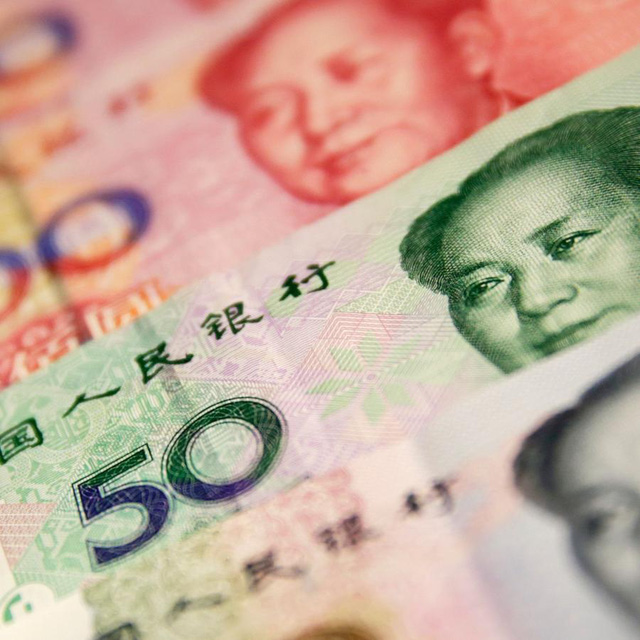
9. Do people use it?
It is difficult to say in advance whether Chinese people will use the cryptocurrency issued by the PBOC. In theory, e-wallets to use the PBOC’s cryptocurrency are no different from Alipay or Wechat e-wallets. Meanwhile, the existing e-wallets of private companies also include many interesting applications such as social networking, e-commerce, taxi calling, investing, borrowing …
Neo’s Da Fonghei said he did not see any reason for people to switch from payment apps like Alipay to PBOC e-wallets, unless the government requires it.
10. How will the bank affect?
Cryptocurrencies will mostly only affect the bank’s bookkeeping procedure without much impact on business operations. Cryptocurrencies will not be included in the savings basket at the bank because they are actually money in circulation, not money that the bank can use to lend.
Commercial banks also have to deposit 100% of the required reserve money at the central bank to use the PBOC cryptocurrency.
In addition, the release of cryptocurrencies will cause the PBOC to strengthen data processing as well as answer questions used by new residents.
11. Economic effects
According to Bloomberg, the impact of cryptocurrencies on the economy will not happen immediately. The main purpose of PBOC is to replace cash with cryptocurrencies so they will not affect the money supply as well as many other monetary policies.
The 2018 PBOC report shows that if cryptocurrencies are widely accepted but because of crisis, people save more cash without depositing at the bank, the situation can still be controlled. Even Beijing authorities can use cryptocurrencies as a non-traditional channel to regulate the market.
For example, the Chinese government may require banks to pinpoint interest rates, purposes, and subjects for cryptocurrency credits, thereby better controlling and regulating policies. book.
In addition, some experts believe that the issuance of cryptocurrencies will give China more monetary policy options. For example, they can apply negative interest rates more easily when people do not deposit money in the traditional way.
Source : Genk
